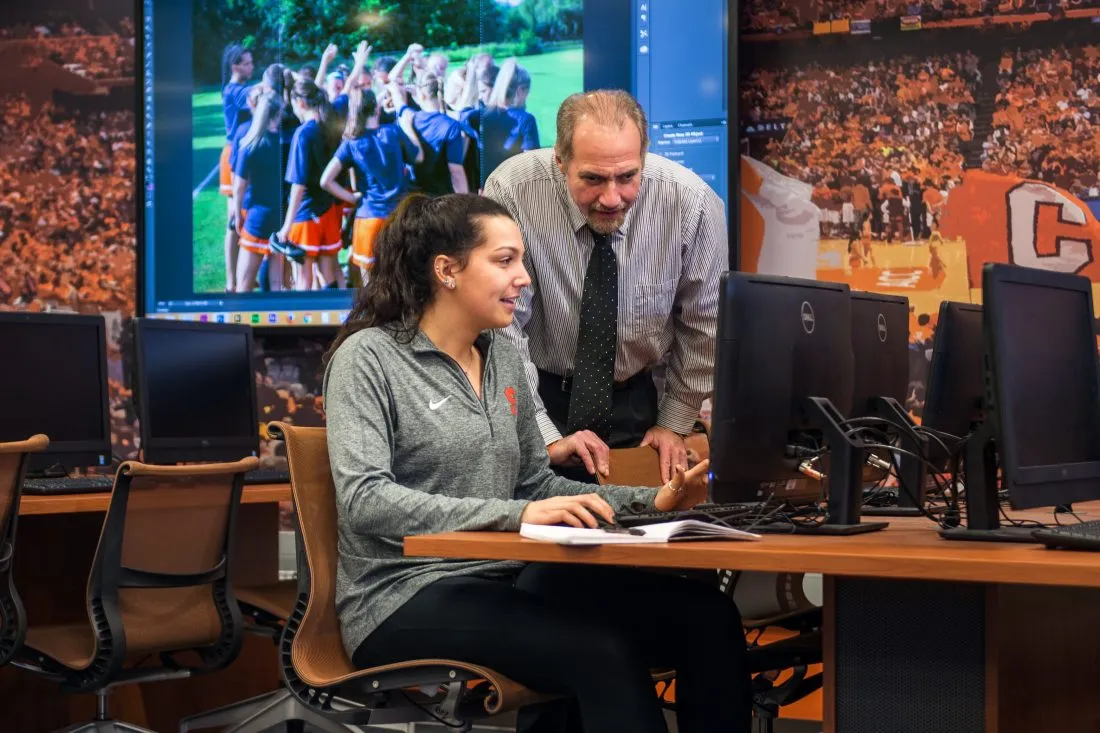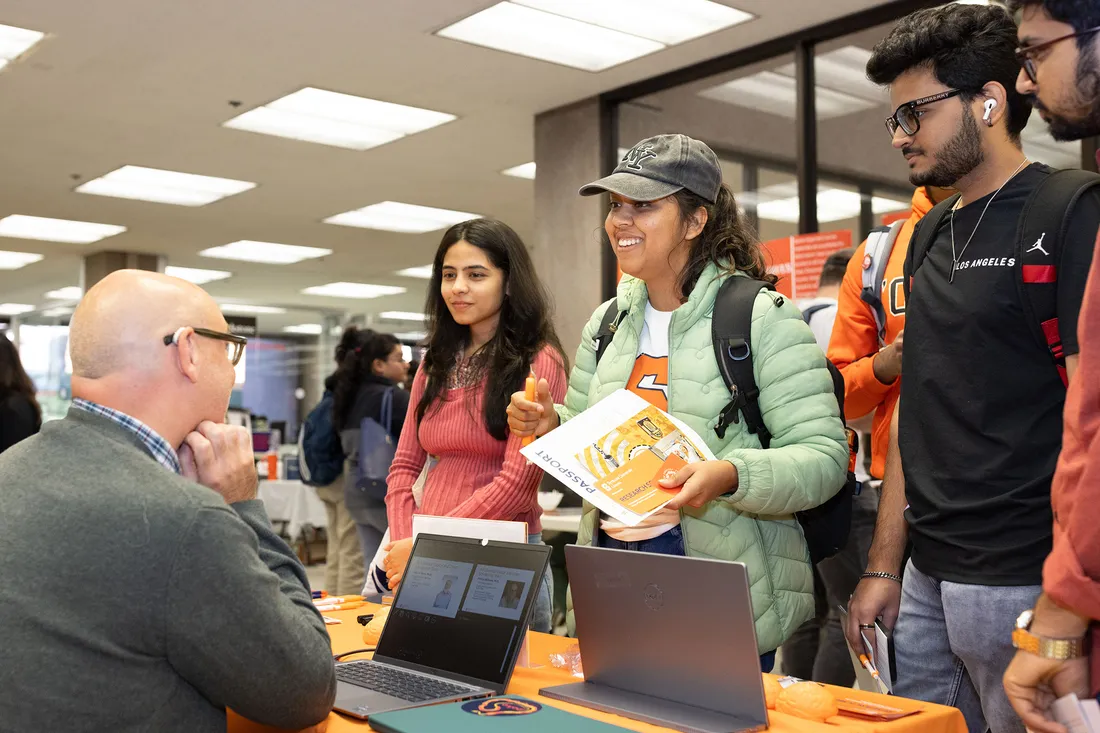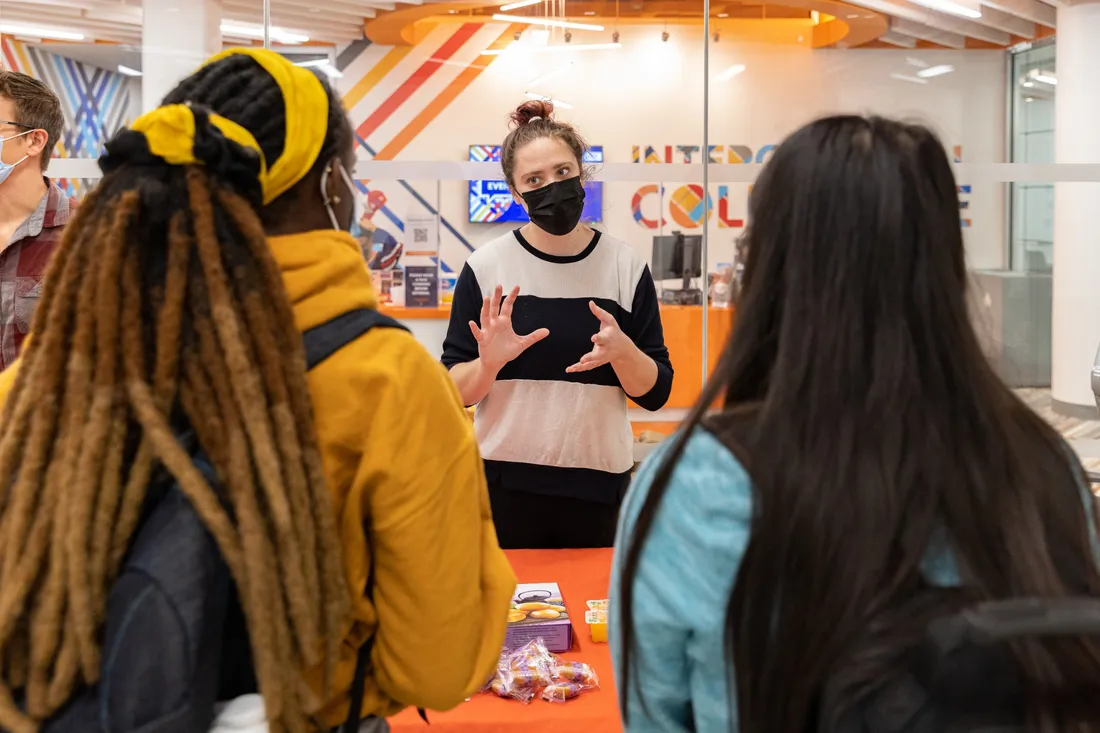
The Schine Student Center’s new Intercultural Collective is home to the Black, Indigenous and People of Color (BIPOC) Student Success, the Disability Cultural Center and the LGBTQ Resource Center.
When Olivia Henderson ’23 first joined the Syracuse University community, she discovered the Black, Indigenous and People of Color (BIPOC) Student Success through her participation in a program supporting academic excellence and leadership development for first year students. Now a sophomore, Henderson says her involvement with BIPOC Student Success programs, and the other services and centers she discovered through them, inspired her to embrace aspects of her identity she had not previously explored.
The exploration, expression and celebration of identity takes a central role in the newly reimagined and renovated Schine Student Center, where BIPOC Student Success joins the Disability Cultural Center (DCC) and the LGBTQ Resource Center on the first floor in an area called the Intercultural Collective. Here, the three offices, which were previously geographically distant from each other on campus, will share communal space where students can connect.
The Intercultural Collective is there for all students. These conversations and collaborations are really what our community stands for and what Syracuse University is all about.
Christian Buonadonna ’22
Honoring Intersectionality
The co-location of these services in a central, easily accessible place on campus honors the intersectionality of identity and allows for coalition-building and collaboration, says Meredith Davis, associate vice president of student engagement. “This allows us to better work together across specializations so we can provide robust programming that meets a multiplicity of identities,” she says.
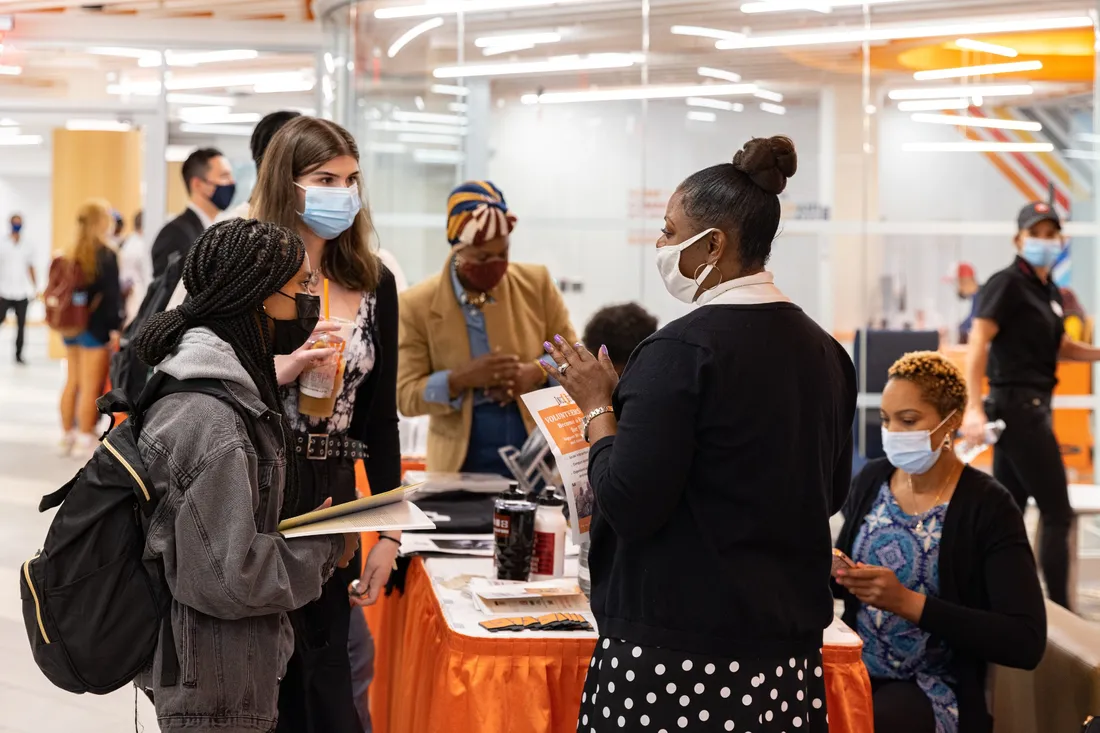
The physical proximity of diverse resources and centers in the Intercultural Collective invites an exploration of intersectionality of identity.
Each office has its area of expertise and will still focus on specific populations, explains Huey Hsiao, associate director of the BIPOC Student Success and the Kessler Program, but the physical proximity and attention to intersectionality means that students who identify with more than one marginalized identity don’t have to prioritize one over the others.
It’s this synergy that Henderson looks forward to. “The Intercultural Collective will allow students to explore the many intersections of their identities all at once, rather than having to face those identities separately,” says the communication and rhetorical studies major. “No one should feel like they have to code switch, or be different versions of themselves, when they move between different communities.”
The co-location allows us to better work together across specializations so we can provide robust programming that meets a multiplicity of identities.
Meredith Davis
Barner-McDuffie House
Barner-McDuffie House is a space that celebrates Black students and culture. Created as a commitment from the University to the demands of student protesters, the Barner-McDuffie House seeks to enhance the student experience by reinforcing Black culture across the African diaspora.
Center for International Services
The Center for International Services is the resource for international students, scholars and their dependents on issues related to immigration status, employment, cultural, social and academic concerns that impact your success at Syracuse University.
Disability Cultural Center
The Disability Cultural Center coordinates campus wide social, educational and cultural activities on disability issues for students, faculty, staff and community members with and without disabilities.
Hendricks Chapel
Hendricks Chapel as the heart of Syracuse University, Hendricks Chapel leads in service to our common good as a student-centered global home for religious, spiritual, moral and ethical life. Established in 1930 as a home for all faiths and place for all people, the chapel hosts nine chaplaincies and 25 student-led religious and spiritual groups.
LGBTQ Resource Center
The Lesbian, Gay, Bisexual, Transgender and Queer (LGBTQ) Resource Center seeks to be a campus and regional leader delivering support, community and education around marginalized genders and sexualities, and the complex intersections of our multiple identities.
Office of Equal Opportunity, Inclusion and Resolution Services
The mission of the Office of Equal Opportunity, Inclusion and Resolution Services is to work with students, faculty and staff to foster a climate of inclusion, access and opportunity. Our office collaborates across all divisions of the University to build community and cultivate a culture of respect, safety and equity that recognizes the value of diversity in all its forms.
Office of Diversity and Inclusion
Since its creation in 2018, the Office of Diversity and Inclusion has worked to thoroughly align and engage with the University’s multiple and varied equity, diversity accessibility and inclusion efforts across each academic and administrative unit on our campus.
Black, Indigenous and People of Color (BIPOC) Student Success
The mission of BIPOC Student Success is to support and promote the academic achievement, multicultural competence, social development, civic engagement, and retention of students from historically underrepresented racial and ethnic groups at Syracuse University.
Office of the University Ombuds
The Office of the University Ombuds provides faculty, staff and graduate students with an informal, confidential, neutral and independent resource to address concerns or questions openly without fear of retaliation or judgment.
Office of Veteran and Military Affairs
The Office of Veteran and Military Affairs serves as the University’s single point of entry for all veteran and military-related programs and initiatives. It collaborates and coordinates with all stakeholders to best serve veterans, military-connected students and military family members who are students or employees at Syracuse University.
STOP Bias and Hate
STOP Bias and Hate is a University wide initiative that educates the campus community about bias and hate, and provides resources to report and receive support for bias-related or hate incidents.
Student Outreach and Support
Supports students, faculty, staff, parents and supporters in identifying and removing academic and non-academic barriers to help students meet their goals.
Modeling Community
Another value of the co-location is the opportunity to engage in meaningful conversation around areas of tension or potential conflict. “Sharing space allows us to hold each other accountable—and to model to the larger community how to respectfully engage in challenging and important conversations around our intersecting identities,” says Jorge Castillo, director of the LGBTQ Resource Center.
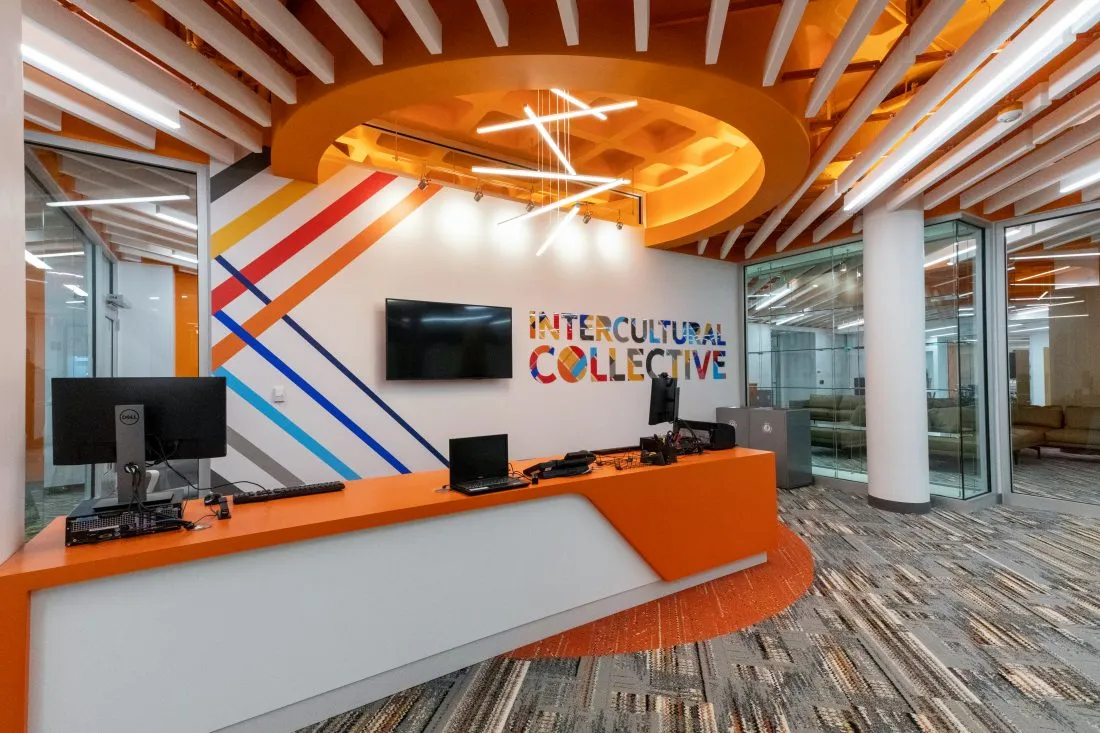
Sharing space allows us to hold each other accountable—and to model to the larger community how to respectfully engage in challenging and important conversations around our intersecting identities,” says Jorge Castillo, director of the LGBTQ Resource Center.
Christian Buonadonna ’22 thinks the education generated by the Intercultural Collective’s programming will be one of its most valuable features. Buonadonna, who majors in sport management in the David B. Falk College of Sport and Human Dynamics , has served as a peer leader in a number of capacities during his time at Syracuse, often with a focus on diversity and inclusion. The experiences he values most are those that have opened his mind to new perspectives.
“The Intercultural Collective is there for all students. It helps us be the kind of community we want to be,” Buonadonna says. “There are so many students at the University who are involved in initiatives that support underrepresented communities—there’s so much energy and so much passion around these topics. These conversations and collaborations are really what our community stands for and what Syracuse University is all about.”

